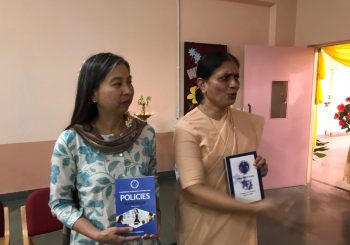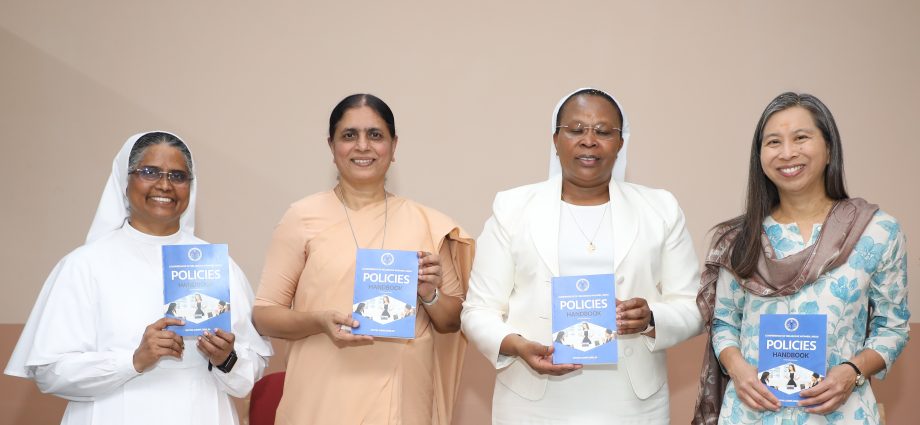By Thomas Scaria
Bengaluru, March 20, 2024: The Conference of Religious Women, India (CRWI), has released its strategic plan for 2024-2029 with a stress on networking and partnerships.
Sister Jane Wakahiu, head of Catholic Sisters Initiative under Hilton Foundation, released the document at Bengaluru on March 19 in the presence of Apostolic Carmel Sister Maria Nirmalini, head of India’s more than 130,000 women and men religious.
Releasing the document, Sister Wakahiu, a member of the institute of the Little Sisters of Saint Francis, Kenya, referred to it as “roadmap to Christian ministries by the women religious in India, characterized by inter congregational collaborations.”
“This plan is a testament to our commitment to human dignity, social justice and environmental stewardship”, said Sister Nirmalini, adding the strategic plan would harness partnerships, dialogue and innovation to manifest the goals.
“Through this plan, we will leverage inter-congregational collaborations, research, and outreach to empower the marginalized, and drive systemic change,” she added.
 She said the plan’s priorities include the empowerment and well-being of the Catholic nuns by setting up a grievance cell, supporting their holistic development through training and counselling, addressing current challenges like old age care, and decreasing vocations.
She said the plan’s priorities include the empowerment and well-being of the Catholic nuns by setting up a grievance cell, supporting their holistic development through training and counselling, addressing current challenges like old age care, and decreasing vocations.
The plan aims to unify women’s congregations across India, continue their ministries of teaching, healing and missionary journey in a collaborative spirit, and affirm women’s rightful place in the Church by promoting equality, participation and gender justice.
The plan also underlines the need to promote inter religious harmony and inter cultural collaboration, and promoting a liveable ecosystem.
In the next five years, CRWI will strengthen nuns’ skills, knowledge, and leadership abilities to enhance ministries, and support the health and mental well-being of religious sisters, and deepen the national network of sisters.
Equipping and empowering women religious, fostering leadership through dialogue with major superiors, and implementing innovative programs for holistic development of sisters and their congregation also will be considered as top priorities in the coming five years.
One of the primary programs implemented by the CRWI under the leadership of Sister Nirmalini was the opening of a Grievance Redressal Cell that conducts workshops and awareness camps in every diocese and takes up remedial measures to address grievances.
The plan also stresses the role of Institute Old Goa-based Mater Dei to serve as a theological formation institute dedicated to empowering women religious in India.
On the occasion, the CRWI also opened a new website (www.crwi.org.in), which will update information about the strategic plan, policies and key focus of areas in the next five years.
Sabrina Wong, the program officer of the Hilton Foundation for Women Religious projects in Asia, released a handbook on policies, rules and regulations by the Conference of Religious Women in India.
The handbook serves as a set of guidelines to draw a road map for implementation of projects, to fulfil the requirements of home ministry, to build a mission focused culture in CRWI, to maintain proper documentation culture, and to pass on the legacy to the next generation.










